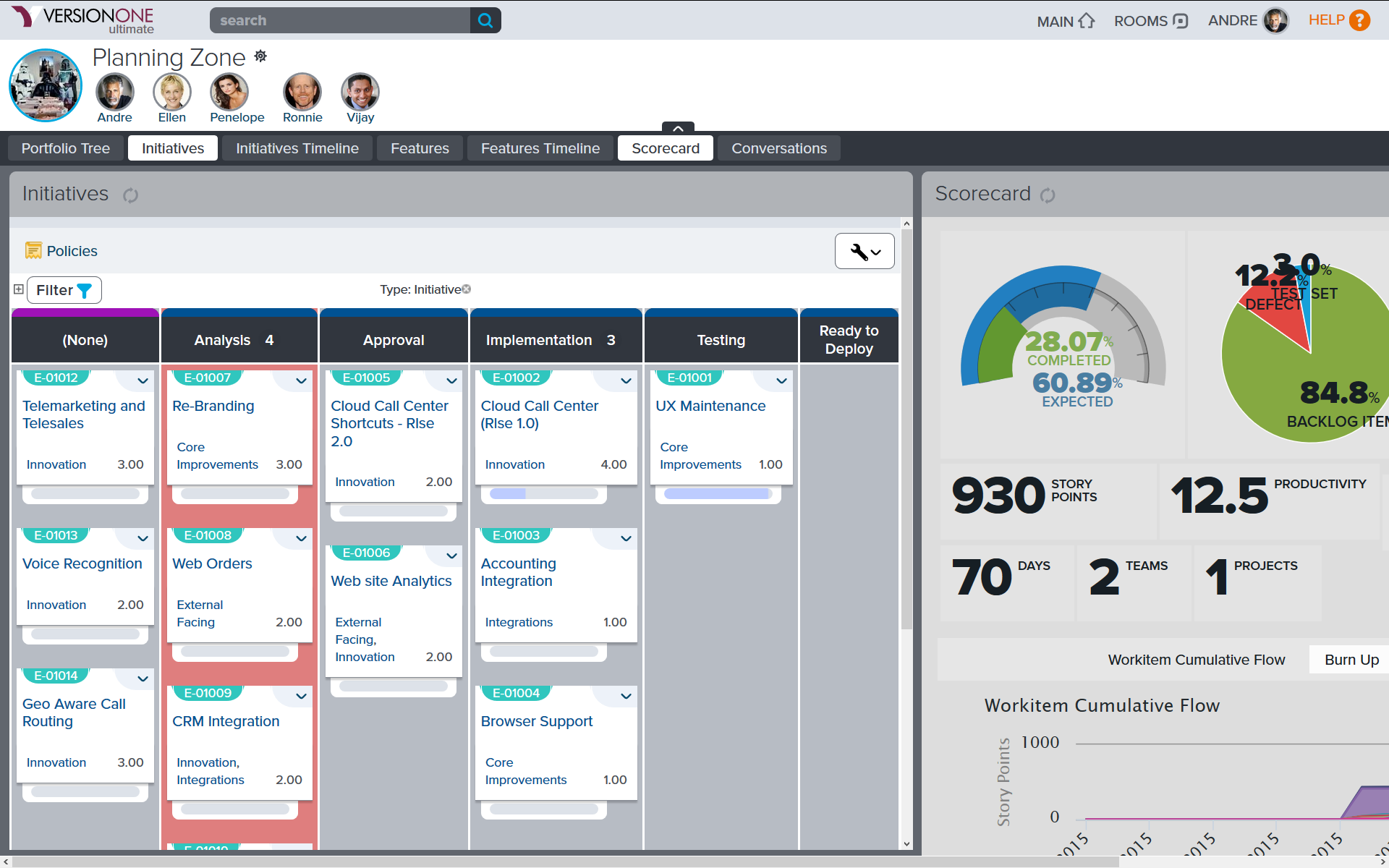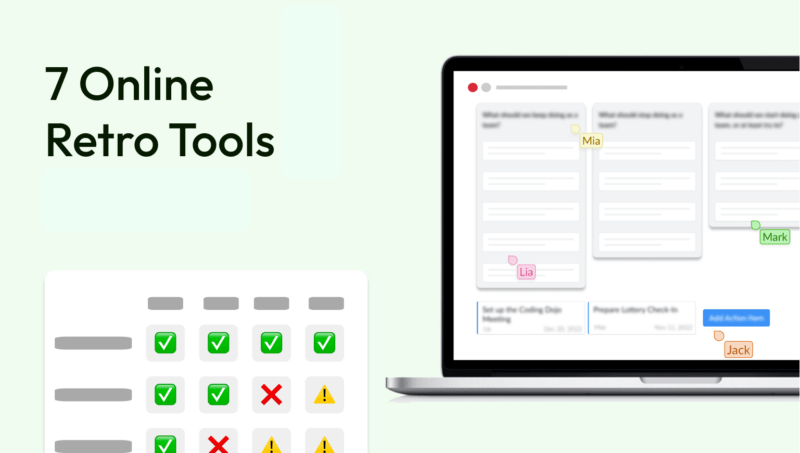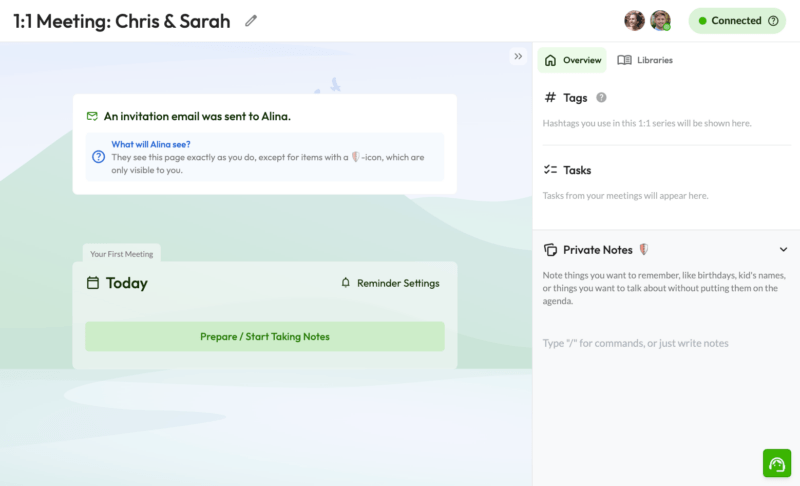Imagine you are playing in an excellent soccer team. Next to you on the pitch are both experienced oldies, age-olds and young talents. Together you'll combine great expertise that will help you win titles and trophies.
But: There is no coach on the sidelines. No master with a tactics board to guide you to success with his intelligent strategy. The result: You don't harmonize. You don't know what one another is doing, - and in the end, you only score an own goal. Well, this is because without a coach, a team can't perform.
The same applies for IT companies and project managers. As a project manager or servant leader, you are responsible for ensuring that your employees use methods, skills, processes and experience in such a way that they meet the project goals. And: In order not to lose the overview and control, you need tools that support you in your management. So today I'm going to show you 5 tools for agile metrics that you can use to organize your projects and evaluate important KPIs.
Why are tools for agile metrics so important in project management?
Efficient project management is indispensable for startups as well as for medium-sized and large companies. This is because it ensures that resources are distributed appropriately and teams feel a sense of cohesion. This is the only way to complete projects within a defined budget and deadline.
As a project manager, you need agile tools for metrics to ensure that the product is not only finished, but also of high quality. These use various KPIsto show you where the development has problems and you need to readjust accordingly. The result: you produce a result that is a bull's eye. That is better than that of the competition.
Before we go any deeper, a quick note. We will soon hold a free webinar on the topic of "the best agile metrics" – with 11 international experts as our guests! You can find more information about it in the teaser video below.
If that sounds interesting, check out the Project Scagile website for more information - you can also register there (see red button above).
1. Jira Atlassian
Source: Jira | Process and project tracking software (atlassian.com)
JIRA Atlassian is a tool for agile metrics that is mainly used by agile software development teams. You can use Jira to create Kanban and Scrum boards, track bugs, view important features and monitor them. In the process, it creates a roadmap of the entire project. This gives you a nice overview of how all tasks are connected. To evaluate agile KPIs on an ongoing basis, Jira automatically reports on the following metrics, among others
- Velocity,
- Sprint Burndown,
- Epic and Release Burndown,
- Control Chart,
- Cumulative Flow Diagram and
- Defects.
This way, you can use Jira to organize your projects, formalize workflows, and optimize KPIs.
2. VersionOne / Digital.ai
Source: VersionOne Software 2021 – Reviews, Prices & Live Demos (softwareadvice.de)
VersionOne, now Digital.ai, is an all-in-one software for agile project management. VersionOne supports common agile processes for software development like Scrum, Kanban, SAFe, Lean, XP and Hybrid.
As with Jira, you can plan and track projects across multiple teams, such as epics, stories, tasks, tests, issues, and problems. To help you keep track of and evaluate project progress, the tool offers agile metrics on, among other things such as:
- Release and Sprint Planning,
- Defect Tracking,
- Burndown and Velocity Reporting and
- Sprint Review and Retrospectives.
By the way, talking about agile transformation... one quick hint: Do you want to make sure that you are setting the right priorities in your agile transformation ?
Fill out our agile maturity assessment for your agile transformation – it only takes 3 minutes! You will even get a benchmark based on the more than 300 participants we already have. Have fun 🙂
3. Basecamp
Source: Basecamp: Project Management & Team Communication Software
Basecamp is an agile tool that focuses project management on key organizational functions such as
- Collaboration,
- File Sharing,
- Milestones and
- To-do Lists.
The tool only offers you pre-built reports on agile metrics if you integrate them via third-party providers. By default, Basecamp lets you create reports on:
- Someone‘s assignments
- Overdue to-dos
- Someone’s activity
- To-dos added & completed
- Upcoming dates
This makes Basecamp more of a pure task management tool - and not a tool for evaluating agile KPIs.
Most Agile Coaches and Scrum Masters run in circles...
...fixing superficial symptoms. Time to use psychology to foster sustainable mindset change.
4. Trello
Source: Trello
Trello is an online tool that allows you to monitor your project progress. For this purpose, Trello visualizes projects in a single board. This way, you always have an overview of which tasks have progressed. The basic version does not include an agile tool for metrics. However, with paid extensions, you can add agile KPIs such as
- Burndown Charts,
- Cycle Time,
- Cumulative Flow Diagram,
- WIP Age and
- Burnup Charts
into Trello.
5. Bonus: Echometer
Last but not least, I would like to introduce you to Echometer. Echometer is a software tool that allows you to define valid KPIs both at management level (e.g., the Agile Center of Excellence) and individually at team level (e.g., Scrum Master). The agile tool for metrics focuses on cultural KPIs, which are measured interactively and diversely in retrospectives and, above all, discussed.
This way, you can not only keep an eye on how your project is progressing, but also on how your team is developing, where there may be friction, and how satisfied your employees are - all important indicators that have an impact on the performance of your project. We'll explain exactly how this works right here.
Conclusion
Agile planning with the right tools is the most important element of project management today. It enables you to remain flexible at all times during the development process - and to optimize where there is a need. In the end, you not only increase product quality, but also employee satisfaction. If you basically want to develop your organization effectively, check out our free eBook Throughout, we present 12 team workshops from a psychological perspective.









